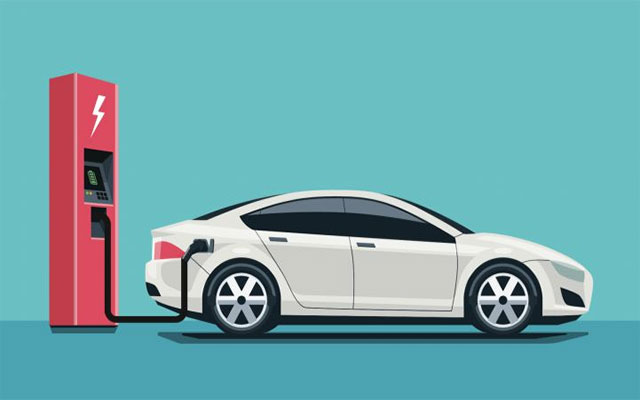There are still myths surrounding the electric car that serve as a weapon for critics, with a technology capable of offering us benefits such as the reduction of emissions in the transport sector, and also the energy dependence of producing countries of oil. To dismantle this myth, the organization of Concerned Scientists (UCS) has published the annual update of its report on the impact of electric car recharging in the United States, taking into account the origin of the electrical energy used for recharging in each state.
According to this report, in the United States, where the deployment of renewables is not as reliable as in Europe, recharging an electric car through the network has never been as sustainable as now. The states have been gradually leaving behind production from thermal plants, betting on others such as hydroelectric, wind, and solar.
In both cases, the calculation has been carried out using the “well-to-wheel” method, where the polluting emissions of the entire process that the energy must pass until it reaches the vehicle and drives it are estimated. This means that in the case of the gasoline car, the extraction, transport, and refining of oil is taken into account, as well as in the case of electric vehicles, the impact of production with coal, gas, fuel, and renewable energy.
The emissions data from this study have taken into account the 2018 electric mix, which allows us to see the estimated emissions from charging an electrician that uses the general network, and which shows that on average the consumption equivalent to a gasoline model would be 88 miles per gallon or 2.67 liters per 100 km. A figure that we can compare with the most efficient gasoline car in the North American market, 58 MPG or 4.06 liters per 100 km, and much better than the industry average that is placed at 31 MPG, or 7.59 liters per 100 km.
The best of all, without a doubt, is the constant evolution of the numbers of the electric ones, which see how the backward movement of the coal allows them to enjoy an increasingly clean recharge. Specifically, 10% better than the report made by this group of scientists two years ago.
In the United States, there are considerable differences according to each state. Despite this, the advance of renewable energies has allowed 94% of Americans to drive an electric car whose recharging has fewer emissions than an average gasoline vehicle with a consumption of 4.7 liters per 100 km. A figure that we can compare with 74% of the previous report with data from 2016, or 45% according to 2009 data.
Based on this data, driving an electric car means fewer greenhouse emissions than a gasoline car across the United States. In some parts of the country, the gasoline model will produce 4 to 7 times more emissions than recharging the electric one. For example, in New York, the electric car would have an estimate of emissions equivalent to a gasoline car with an average consumption of 231 MPG, or 1.02 liters per 100 km. In comparison, in California, the figure would be 122 MPG or 1.93 liters per 100 km.
Added to this are two key factors that, despite the evolution of gasoline efficiency, the difference is increasing. One is the more significant implementation of renewable energies, which has allowed the American electricity grid to reduce its emissions by 5% between 2016 and 2018, largely thanks to the sharp decline in coal production. A source that has seen how, in a decade, its participation in the electricity mix has dropped from 45% to 28%. A fall that has coincided with the advance of sources such as solar and wind, which have gone from just 2% to 8% in 2018 and 9% in 2019, the year in which even wind has surpassed the hydroelectric.
The other part comes from the improvement of the electrical systems of the vehicles, which have also evolved to achieve models with lower and lower consumption, being the estimate between 2016 and 2018 of 6% average improvement. For example, the car with the best figures according to EPA data is the Tesla Model 3 Standard Range Plus, with an average equivalent consumption of 161 MPG, or 1.46 liters per 100 km. An impressive figure for a sedan, like the American Tesla that achieves less than a fifth of the emissions compared to an average gasoline car, and more than 60% less than even the most efficient gasoline model on the market. Differences that are enlarged even more when we talk about the most popular models in the American market, the SUVs.
For the comparison, they have taken as an example one of the least efficient models on the market, the Audi E-Tron, with an average consumption of 28.4 kWh per 100 km. A figure that compares with a gasoline model that does not stand out for its efficiency, such as the Audi Q8 gasoline. According to the data, E-Tron will produce fewer emissions in all states, even in the most dependent on coal. At the same time, in the cleanest, the electric SUV enjoys a quarter of the emissions compared to gasoline.

